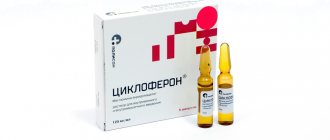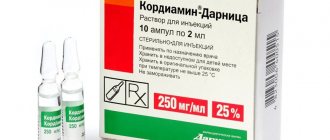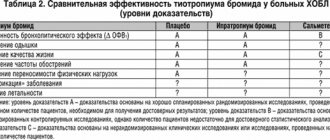Home | About us | Delivery | Advertisers | Login | Registration
Delivery on Sundays and holidays does not work!
- Medicines
- dietary supplementsVitamins
- Categories from A to Z
- Brands from A to Z
- Products from A to Z
- Medical equipment
- beauty
- Child
- Care
- Honey products appointments
- Herbs and herbal teas
- Medical nutrition
- Journey
- Making medicinesStock
Pharmacy online is the best pharmacy in Almaty, delivering medicines to Almaty. An online pharmacy or online pharmacy provides the following types of services: delivery of medicines, medicines to your home. Online pharmacy Almaty or online pharmacy Almaty delivers medicines to your home, as well as home delivery of medicines in Almaty.
my basket
Apteka84.kz is an online pharmacy that offers its customers medicines, medicinal and decorative cosmetics, dietary supplements, vitamins, baby food, intimate products for adults, medical equipment and thousands of other medical and cosmetic products at low prices. All data presented on the Apteka84.kz website is for informational purposes only and is not a substitute for professional medical care. Apteka84.kz strongly recommends that you carefully read the instructions for use contained in each package of medicines and other products. If you currently have any symptoms of the disease, you should seek help from a doctor. You should always tell your doctor or pharmacist about all the medicines you take. If you feel you need further help, please consult your local pharmacist or contact our GP online or by telephone.
© 2022 Pharmacy 84.
Instructions for use GINIPRAL® (GINIPRAL)
During the use of GINIPRAL®, you should monitor the mother's pulse and blood pressure, as well as the fetal heartbeat. It is recommended to record an ECG before and during treatment. Patients with hypersensitivity to sympathomimetics should use GINIPRAL® in small doses prescribed individually, under constant medical supervision.
If there is a significant increase in the mother's heart rate (more than 130 beats/min) and/or a significant decrease in blood pressure, the dose should be reduced; if there are complaints of difficulty breathing, pain in the heart, or if signs of heart failure appear, the use of GINIPRAL® should be stopped immediately.
Pregnant women with diabetes should monitor carbohydrate metabolism, because the use of GINIPRAL®, especially in the initial stage of treatment, may cause an increase in blood sugar levels. If childbirth occurs immediately after a course of treatment with GINIPRAL®, it is necessary to take into account the possibility of hypoglycemia and acidosis in newborns due to the transplacental penetration of acidic metabolic products (lactic and ketonic acids).
In some cases, the simultaneous use of glucocorticosteroids during GINIPRAL® infusions may cause pulmonary edema. Therefore, during infusion therapy, constant careful clinical monitoring of patients is necessary. This is especially important during combined treatment with corticosteroids in patients with concomitant diseases that contribute to fluid retention (kidney disease). Strict limitation of excess fluid intake is necessary. The risk of possible development of pulmonary edema requires limiting the volume of infusions as much as possible, as well as using dilution solutions that do not contain electrolytes. You should limit your salt intake from food. Before starting tocolytic therapy, it is necessary to take potassium supplements, because with hypokalemia, the effect of sympathomimetics on the myocardium is enhanced. The simultaneous use of certain narcotic drugs (halothane) and sympathomimetics can lead to cardiac arrhythmias. Taking GINIPRAL® must be stopped before using halothane for anesthesia. With prolonged tocolytic therapy, it is necessary to monitor the condition of the fetoplacental complex and ensure that there is no placental abruption. Clinical symptoms of premature placental abruption can be smoothed out with tocolytic therapy. When the membranes rupture and when the cervix is dilated by more than 2-3 cm, the effectiveness of tocolytic therapy is low.
During tocolytic treatment with beta-agonists, the symptoms of concomitant dystrophic myotonia may intensify. In such cases, the use of diphenylhydantoin (phenytoin) drugs is recommended.
Indications for use of the drug Ginipral
Acute tocolysis: rapid suppression of labor contractions in cases of acute intrauterine asphyxia (fetal distress); before manual rotation of the fetus from a transverse position; with prolapse of the umbilical cord; complicated labor; relaxation of the uterus before caesarean section. Massive tocolysis: inhibition of premature contractions in the presence of a smoothed cervix and/or dilatation of the uterine pharynx. Long-term tocolysis: danger of premature birth (uterine contractions without shortening and dilation of the cervix); relaxation of the uterus before, during and after cerclage application. Bronchial asthma (treatment and prevention), broncho-obstructive syndrome, bronchospastic reactions of various origins.
Pharmacological properties of the drug Ginipral
Selective beta2-adrenomimetic, reduces the tone and contractile activity of the myometrium. Reduces the frequency and intensity of uterine contractions, suppresses spontaneous and oxytocin-induced labor contractions. During childbirth, it normalizes excessively strong or irregular contractions. Under the influence of the drug, premature contractions stop in most cases, which makes it possible to prolong pregnancy until the normal term of birth. Due to its beta2 selectivity, the drug has a slight effect on the cardiac activity and blood flow of the pregnant woman and the fetus.
Storage conditions
Store in original packaging at a temperature not exceeding 25°C, out of the reach of children.
Shelf life: 3 years.
Reconstituted solution: The chemical and physical stability of the reconstituted solution after dilution (0.9% sodium chloride solution or 5% glucose solution) has been demonstrated for 24 hours at a temperature of 15-25°C. From a microbiological point of view, the drug should be used immediately. In case of non-use immediately, the terms and conditions of storage of the reconstituted solution for its use are the responsibility of the user.
Product description certified by the manufacturer Takeda
.
Verified
Sevryukov Alexander Viktorovich
Overdose of the drug Ginipral, symptoms and treatment
An overdose of GINIPRAL can be determined by a strong increase in the mother's heart rate, the occurrence of tremor, palpitations, headache, and sweating. These manifestations can usually be removed by reducing the dose of the drug. To eliminate severe manifestations of drug overdose, it is necessary to use GINIPRAL antagonists - non-selective beta-adrenolytic drugs that completely neutralize the effect of GINIPRAL.
List of pharmacies where you can buy Ginipral:
- Moscow
- Saint Petersburg
Mode of application
For intravenous bolus or infusion.
The indicated dosage can be used only as a guide, since tocolysis requires an individual approach to the patient.
Initiation of therapy with Ginipral should only be carried out by obstetricians/doctors with experience in the use of tocolytic agents. Treatment is carried out only in properly equipped institutions to ensure constant monitoring of the health of the mother and fetus.
The drug "Ginipral" should be used as early as possible after diagnosing premature birth and excluding any contraindications to the use of hexoprenaline.
During drug therapy, it is necessary to properly assess the state of the cardiovascular system using continuous ECG monitoring.
Dosages
Before turning the fetus from a transverse position and when used as an emergency measure for premature birth before transporting the pregnant woman to the hospital. The recommended dose is 10 mcg (one ampoule of 2 ml) of the drug "Ginipral", diluted in 10 ml of 0.9% sodium chloride solution or 5% glucose solution, administered intravenously over 5-10 minutes. If necessary, continue treatment with Ginipral, concentrate for the preparation of a solution for infusion.
Short-term treatment of premature labor in the presence of shortening and/or dilatation of the cervix. At the beginning of treatment, they begin with a jet injection of a dose of 10 mcg (one ampoule of 2 ml), followed by an infusion of the drug "Ginipral" at a rate of 0.3 mcg/minute. As an alternative treatment, it is possible to use only infusions of the drug "Ginipral" at a rate of 0.3 mcg/minute without prior jet administration of the drug. Administer intravenously (when calculating the rate of administration using conventional infusion systems, take into account that 20 drops = 1 ml). Dissolve the required amount of concentrate ampoules for infusion in 500 ml of 0.9% sodium chloride solution or 5% glucose solution.
Short-term treatment of premature labor without shortening or dilation of the cervix. Recommended dose: continuous infusion of 0.075 mcg/minute. Administer intravenously (when calculating the rate of administration using conventional infusion systems, take into account that 20 drops = 1 ml). Dissolve the required amount of concentrate ampoules for infusion in 500 ml of 0.9% sodium chloride solution or 5% glucose solution.
Duration of treatment
The duration of tocolytic treatment depends on the existing degree of risk of miscarriage (a tendency towards a decrease in the interval between contractions, the condition of the cervix) and on the severity of side effects (for example, an increase in heart rate). Side effects should be minimized as much as possible.
The duration of treatment should not exceed 48 hours, since research suggests that tocolytic therapy can delay labor by up to 48 hours. In randomized controlled trials, no statistically significant effect of treatment with Ginipral on perinatal mortality or morbidity was observed. Delaying birth with Ginipral can be used to implement other measures that significantly improve perinatal health.
Ginipral injection solution 5 µg/ml 2 ml amp 5 pcs
Taking Ginipral should only be started after a careful assessment of the risk/benefit ratio. Treatment should be carried out in a medical facility equipped with the equipment necessary for continuous monitoring of the condition of the mother and fetus. Tocolytic therapy with beta-agonists is not recommended for ruptured membranes and cervical dilation of more than 4 cm.
It is necessary to monitor the state of the cardiovascular system and respiratory function of the mother, as well as ECG changes during therapy.
The following parameters should be continuously monitored in the mother and, if possible/necessary, in the fetus: - Blood pressure, heart rate; — ECG indicators; — Water-salt balance (due to the risk of developing pulmonary edema); — Concentration of glucose and lactate (primarily in patients with diabetes mellitus); — Potassium concentration (the use of beta-agonists is associated with the risk of hypokalemia, which can lead to arrhythmia). If hypokalemia develops in the patient before tocolytic therapy is prescribed, potassium supplements should be started.
If signs of myocardial ischemia appear (chest pain, ECG changes), you should stop taking Ginipral.
Ginipral should not be prescribed for tocolytic therapy in patients with any signs or increased risk factors for heart disease, including tachyarrhythmias, heart failure or heart defects. If there are concomitant heart diseases or if any of these diseases are suspected, therapy with Ginipral should be prescribed after consultation with a doctor experienced in tocolytic therapy in such patients.
Pulmonary edema Since cases of pulmonary edema and myocardial ischemia have been reported during and after the use of beta-agonists to suppress preterm labor, changes in the water-salt balance and the state of the cardiac and respiratory activity of the mother should be carefully monitored during therapy. In patients with predisposing factors such as multiple pregnancies, hypervolemia, infections and preeclampsia, the risk of developing pulmonary edema is especially high.
Using an automatic dosing infusion pump instead of a standard infusion system can reduce the risk of hypervolemia. If signs of pulmonary edema or myocardial ischemia appear, the administration of Ginipral should be discontinued.
This is especially important in combination therapy with glucocorticosteroids in patients with concomitant diseases and complications of pregnancy (kidney disease and moderate to severe preeclampsia in the second half of pregnancy).
You should limit your salt intake from food.
Blood pressure and heart rate The use of beta-agonists usually leads to an increase in maternal heart rate by 20-50 beats/min. During therapy, the mother's pulse should be monitored; if the heart rate increases, the question of reducing the dose or discontinuing the drug should be decided on an individual basis. The mother's heart rate should not be allowed to increase above 120 beats/min.
Also, when using the drug Ginipral, a slight decrease in blood pressure may be observed; in this case, the decrease in diastolic pressure is usually more pronounced than in systolic pressure. The magnitude of the decrease in diastolic pressure is usually 10-20 mm Hg. Art. To a lesser extent, taking Ginipral affects the fetal heart rate; an increase of up to 20 beats/min may be observed.
To minimize the risk of arterial hypotension during tocolytic therapy, it is recommended that the infusion be administered in the lateral decubitus position to avoid inferior vena cava compression syndrome.
Diabetes The use of beta-agonists may cause an increase in blood glucose concentrations. Therefore, you should monitor the concentration of glucose and lactate in patients with diabetes mellitus, and, if necessary, adjust the dose of hypoglycemic drugs during tocolytic therapy.
If childbirth occurs immediately after a course of therapy with Ginipral, it is necessary to take into account the possibility of developing hypoglycemia in newborns, since hexoprenaline can lead to an increase in the concentration of glucose and insulin in the mother, as well as acidosis, since the penetration of acidic metabolic products (lactate, ketone acids) is possible. through the placenta.
Other instructions During tocolytic therapy using beta-agonists, the symptoms of concomitant dystrophic myotonia may increase. In such cases, the use of diphenylhydantoin preparations is recommended.
In case of hypersensitivity to sympathomimetics, Ginipral should be used in small, individually selected doses and under close medical supervision.
In rare cases, sodium disulfite, which is part of the drug Ginipral, can cause a hypersensitivity reaction and bronchospasm. Hypersensitivity may be manifested by symptoms such as nausea, diarrhea, bronchial obstruction, acute attack of bronchial asthma, impaired consciousness or shock. Hypersensitivity reactions can develop with varying severity and speed, and in some cases can lead to life-threatening conditions.
Ginipral may have a depressant effect on intestinal motility (rare cases of intestinal atony have been reported). In this regard, during tocolytic therapy it is necessary to monitor the regularity of bowel movements.
Effect on the ability to drive vehicles and operate machinery During the treatment period, care should be taken when driving vehicles and while engaging in potentially hazardous activities that require increased concentration and speed of psychomotor reactions.
Side effects of the drug Ginipral
Dizziness, anxiety, slight tremor of the fingers, increased sweating, tachycardia, headache, and increased activity of the liver may appear. There may be a decrease in blood pressure, especially diastolic. In some cases, nausea and vomiting appear. Isolated cases of heart rhythm disturbances (ventricular extrasystole), cardialgia, and difficulty breathing were recorded. These symptoms disappear very quickly after stopping use of the drug. Blood sugar levels, especially in diabetes, increase due to the glycogenolytic effect of the drug. Diuresis decreases, especially in the initial stage of treatment. In patients with a tendency to retain fluid in the tissues, this can lead to edema. During treatment with GINIPRAL®, the intensity of intestinal motility may decrease (pay attention to the regularity of stool). In newborns - hypoglycemia and acidosis, bronchospasm, anaphylactic shock.
Contraindications
- hypersensitivity to hexaprenaline or to any component of the drug;
- the presence of any disease before 22 weeks of pregnancy;
- use of the drug as a tocolytic agent in patients with a history of coronary heart disease or in patients with significant risk factors for the development of coronary heart disease;
- threat of miscarriage during the first and second trimesters of pregnancy;
- any disease of the mother or fetus in which continuation of the pregnancy is dangerous, for example, severe toxemia, intrauterine infection, vaginal bleeding due to placenta previa, eclampsia or severe preeclampsia, placental abruption or umbilical cord compression;
- intrauterine fetal death, history of lethal congenital anomalies, or lethal chromosomal abnormalities;
- bronchial asthma with hypersensitivity to sulfates;
- diseases of the cardiovascular system, in particular tachyarrhythmia, myocarditis, mitral valve disease;
- hyperthyroidism;
- severe liver and kidney diseases;
- glaucoma;
- the use of the drug "Ginipral" is contraindicated in patients with diseases against which the use of beta-agonists may have undesirable effects, for example, pulmonary hypertension, diseases of the cardiovascular system (hypertrophic obstructive cardiomyopathy or obstruction of blood flow from the left ventricle, for example, aortic stenosis) .
Ginipral® (Gynipral)
During the period of use of Ginipral, it is recommended to carefully monitor the functions of the cardiovascular system (heart rate, blood pressure) of the mother and fetus. It is recommended to record an ECG before and during treatment.
Patients with hypersensitivity to sympathomimetics should be prescribed Ginipral® in small doses, selected individually, under constant medical supervision.
If there is a significant increase in the mother's heart rate (more than 130 beats/min) and/or with a significant decrease in blood pressure, the dose of the drug should be reduced.
If difficulty breathing, pain in the heart, or signs of heart failure occur, the use of Ginipral should be stopped immediately.
The use of Ginipral may cause an increase in glucose in the blood plasma (especially during the initial period of treatment), so carbohydrate metabolism should be monitored in mothers with diabetes. If childbirth occurs immediately after a course of treatment with Ginipral, it is necessary to consider the possibility of hypoglycemia and acidosis in newborns due to transplacental penetration of lactic and ketone acids.
When using Ginipral, diuresis decreases, so you should carefully monitor symptoms associated with fluid retention in the body.
In some cases, simultaneous use of GCS during Ginipral infusions may cause pulmonary edema. Therefore, during infusion therapy, constant careful clinical monitoring of patients is necessary. This is especially important in the combined treatment of GCS in patients with kidney disease. Strict limitation of excess fluid intake is necessary. The risk of possible development of pulmonary edema requires limiting the volume of infusions as much as possible, as well as using dilution solutions that do not contain electrolytes. You should limit your salt intake from food.
It is recommended to monitor the regularity of bowel movements during the period of use of the drug.
Before starting tocolytic therapy, it is necessary to take potassium supplements, because with hypokalemia, the effect of sympathomimetics on the myocardium is enhanced.
The simultaneous use of general anesthesia (halothane) and sympathomimetics can lead to cardiac arrhythmias. Ginipral should be discontinued before using halothane.
With prolonged tocolytic therapy, it is necessary to monitor the condition of the fetoplacental complex and ensure that there is no placental abruption. Clinical symptoms of premature placental abruption can be smoothed out with tocolytic therapy. When the membranes rupture and when the cervix is dilated by more than 2-3 cm, the effectiveness of tocolytic therapy is low.
During tocolytic therapy with the use of beta-agonists, the symptoms of concomitant dystrophic myotonia may intensify. In such cases, the use of diphenylhydantoin (phenytoin) drugs is recommended.
When using the drug in the form of tablets with tea or coffee, the side effects of Ginipral may increase.



